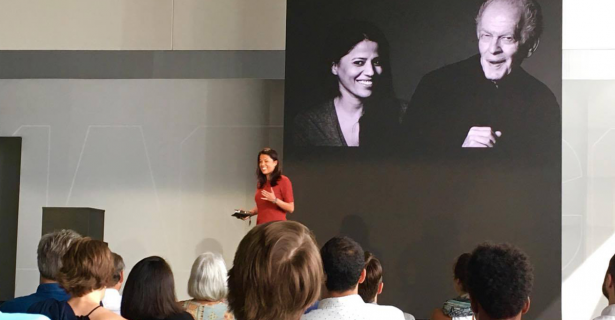This summer I am working remotely for the Albert Einstein Institution as an IGL Oslo Scholar. I am working for Jamila Raqib, the executive director of the institution who was an Oslo Freedom Forum Fellow. The Albert Einstein Institution works to advance the worldwide study and strategic use of nonviolent action. Through educational materials such as Dr. Gene Sharp’s book, “From Dictatorship to Democracy”, the institution seeks to support the liberation of people all over the world.
Despite remaining in Boston with occasional meetings with director Jamila, the organization's work is inherently global. The Albert Einstein Institution receives hundreds of requests from organizers and leaders asking for copies of our books, translations of our work, and support in their resistance against oppressive regimes.
My summer has been spent on many different projects, allowing me to understand many parts of the organization. One day I was writing briefings on Venezuela to support my supervisor in working with Venezuelan activists. The next day, I was transcribing old correspondence between Gene Sharp and Albert Einstein, our organization's namesake.
Working at a non-profit, human rights organization, the question I have come to grapple with the most is human rights: how are marginalized people, Black women and women of color ab/used in the context of human rights? How do they simultaneously exist as both the subject and object of human rights? Despite constantly leading the resistance, doing the work, sparking the revolution, they are portrayed as “needing saviors” which is where the non-profit swoops in.
As I struggled with these questions, my supervisor invited me to attend the Defiance Conference, an event put on by the MIT Media Lab, celebrating resistance and change. At this conference, I had the opportunity to hear from Esra’a Al Shafei, a Bahraini human rights activist, an outspoken defender of free speech, and founder of Majal.org, a network of online platforms that amplify under-reported and marginalized voices. I also had the opportunity to hear from Masha Gessen, an activist, journalist and author of many books including Words Will Break Cement: The Passion of Pussy Riot. I heard from Adam Foss, founder of Prosecutors Impact discuss the school to prison pipeline. I learned about how “change-maker” leaders of nonprofits, government officials and attorneys could all be complicit in oppression, while being busy trying to create change.
As I’m ending my internship and reflecting on these experiences, I am thinking about how the nonprofit sector does a lot of work in providing research, materials and resources for people, but dominant narratives often accredit the non-profit with being the driving force behind change, deeply overlooking the resilience and strength of marginalized people and their commitment to liberation. I am wondering how organizations can expand their impact and support these leaders, without being “savior” like, and what does “centering” marginalized voices look like without making a “subject” out of them.
I still do not have any of the answers, in fact, I’m not even sure that I have all the questions but what I’ve gained is awareness, an ability to critique and to continue asking questions that need answers.

